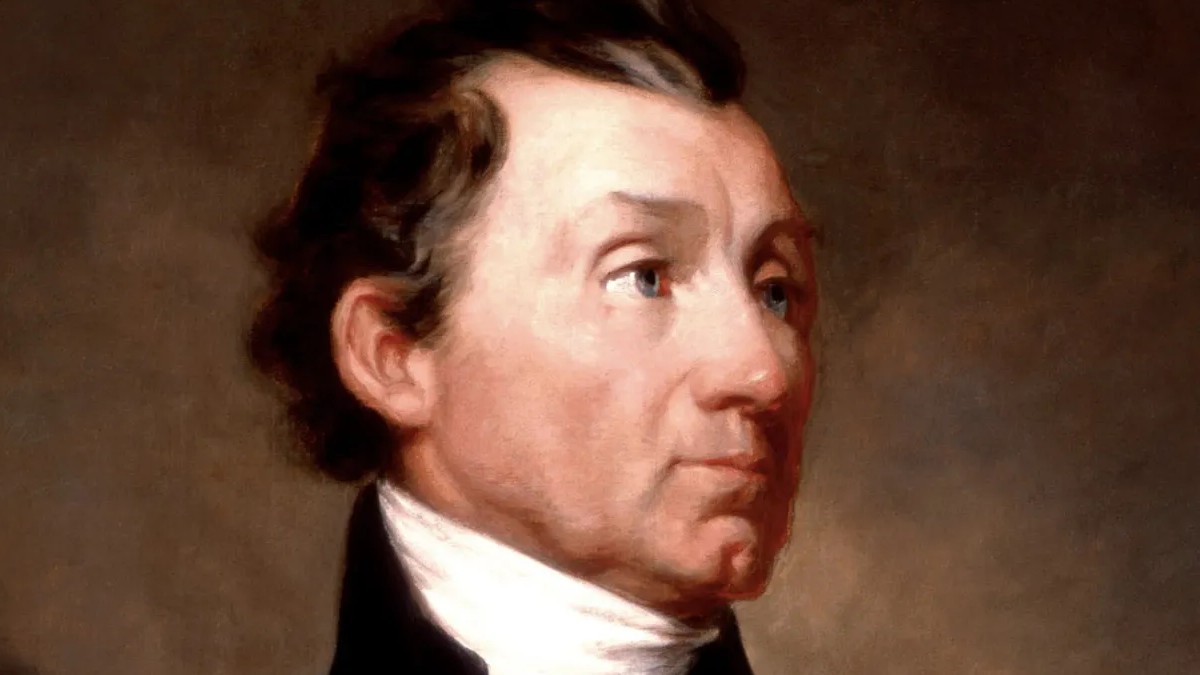Editor’s Note: This profile is part of a series taking a closer look at US presidents ahead of the 2024 presidential election between Donald Trump and Kamala Harris.
James Monroe was a gentleman in all things – speech, manner and dress.
He was the final founding father to be president and the last of the so-called Virginia Dynasty.
His ‘Monroe Doctrine’ continues to be relevant to this day.
He was also governor, a senator, a cabinet official, a diplomat and a soldier.
Let’s take a look at the fifth President of the United States.
Early years
Monroe was born April 28, 1758, in Virginia’s Westmoreland.
His parents were Spence and Elizabeth Jones Monroe. His family owned 600 acres of land and a number of slaves. Monroe attended Campbelltown Academy as a child.
Though things changed after his parents passed away, a family friend encouraged Monroe to continue his schooling.
Monroe at 16 attending the College of William & Mary.
However, the American revolution changed everything. Monroe quit college and entered the Third Virginia Infantry Regiment in Continental Army. Monroe would make the famous Delaware crossing with general George Washington.
He was carried from the field of battle after taking a near-fatal wound in the soldier.
But Monroe was far from done with the fighting. Promoted to captain and then major, he took part in a number of battles including Valley Forge and the battle of Monmouth.
Impact Shorts
More ShortsIn 1780, Monroe felt he had done his duty.
He resigned his commission and took up studying law under Thomas Jefferson.
Monroe would establish a deep relationship with Jefferson, the then Governor of Virginia, and take up the cause of Jeffersonian politics.
It was Jefferson who introduced Monroe to James Madison.
Politics
Monroe in 1782 was elected to the Virginia House of Delegates.
Thus began his political ascent.
Monroe next became a member of the Congress of the Confederation.
Here, he advocated for US control of the Mississippi – then held by Spain – as well as pushed for the government’s right to regulate commerce.
Monroe in 1786 took a break from politics.
He was chosen to be part of the Virginia Convention – which ratified the new US constitution.
In 1790, Monroe was elected to the US Senate.
Despite opposing then president George Washington’s administration, he was chosen as the Minister to France in 1794.
During his years overseas, Monroe displayed much sympathy for the French cause and its revolution.
His associations with France would come in handy later.
In 1796, Washington recalled Monroe from France.
Monroe was then elected Virginia governor in 1799 – a post he would hold till 1802.
By 1803, Thomas Jefferson was president.
His old friend appointed him envoy extraordinary and minister plenipotentiary to France.
Monroe and Robert R Livingston would carry out one of the most important deals in America’s history – the Louisiana purchase.
They bought New Orleans and some 828,000 square miles west of the Mississippi from Napolean for the princely sum $15 million.
Monroe then left for London – he was also minister for Great Britain – but found no great success there.
Monroe returned to the United States where he again served in Virginia House of Delegates and then governor.
In 1811, then president James Madison chose Monroe to be his secretary of state.
The next year, the war with Great Britain broke out.
Monroe now appointed Madison to be the secretary of war as well.
In 1816, Madison was the obvious Republican candidate for president.
It also helped that he had the full backing of Madison.
Monroe easily defeated Federalist candidate Rufus King to become president.
Time in office
Monroe, after his administration, went on a ‘goodwill tour’ of the nation.
This period, in the aftermath of the war with Great Britain, came to be known as the ‘Era of Good Feelings.’
Under Monroe, the First Seminole War would be concluded successfully, Florida would be acquired from Spain and the Missouri Compromise of 1820 over slavery would be enacted.
But perhaps the most important tenet that emerged from Monroe’s presidency was the idea that America had a right to influence events in the Western Hemisphere.
This idea, which would be the brainchild of both Monroe and John Quincy Adams, would in the decades ahead come to be known as the ‘Monroe Doctrine’.
Monroe, after serving two terms, returned to Virginia.
Legacy
Monroe was an extremely consequential and successful president.
He refashioned American policy, which continues to follow the ‘Monroe Doctrine’ to this day, in his own image.
Though he does not measure up to the other giants of the day such as George Washington, Thomas Jefferson, and James Madison, he was a successful diplomat and an able administrator who got the best out of those he worked for – and those who worked for him.


)

)
)
)
)
)
)
)
)



